Unveiling the Magic: The Ultimate Montessori Toy List for All Ages
Discover the ultimate Montessori toy list, catering to children of all ages and fostering growth, imagination, and a deep love for learning. Montessori toys encourage hands-on exploration and self-directed activity, which is crucial for developing critical thinking and fine motor skills.
This carefully curated selection includes toys that align with Montessori principles, promoting a nurturing environment that respects and enhances each child’s natural developmental journey. Dive into our guide to find toys that inspire, educate, and entertain, ensuring that learning becomes a joyful discovery every day.
Discussing the Basics: List of Montessori Toys
Montessori toys are designed to foster self-directed activity, hands-on learning, and collaborative play. Unlike traditional toys, they are structured to support children’s developmental stages, emphasizing simplicity and natural materials.
A Montessori toy encourages exploration and discovery by allowing children to engage at their own pace. The goal is to cultivate a sense of independence, focus, and responsibility as children interact with these educational tools.
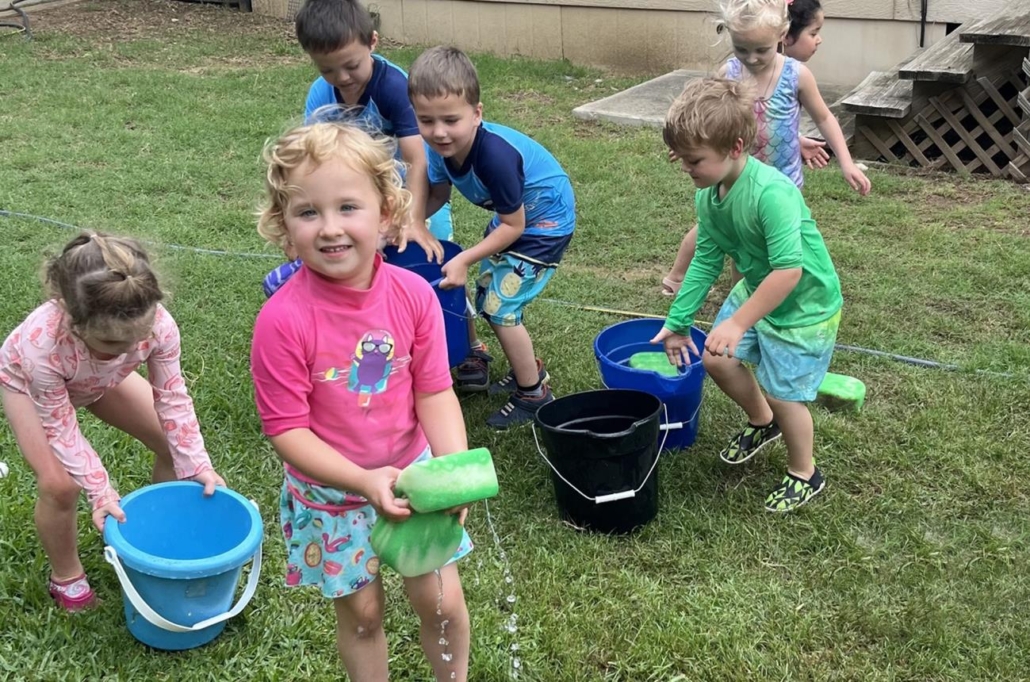
Benefits of Montessori Toys for Child Development
Montessori toys play a pivotal role in child development by enhancing sensory-motor skills, cognitive processing, and social interaction. Here are several key benefits:
- Sensory Development: These toys help refine the senses through activities that differentiate textures, colors, and sounds.
- Motor Skills: Engaging with toys like wooden puzzles or threading beads aids in developing fine motor skills and hand-eye coordination.
- Cognitive Growth: Montessori toys designed for sorting, matching, or assembling promote problem-solving skills and logical thinking.
- Social Skills: Many Montessori materials require cooperative play, fostering social skills and peer teamwork.
Examples of Popular Montessori Toys for Sensory and Motor Skills
- Stacking and Nesting Blocks: These blocks help children learn about size, shape, and sequencing, enhancing spatial awareness and coordination.
- Sandpaper Letters and Numbers: These tactile materials allow children to trace and feel the shape of letters and numbers, linking the physical sense of touch with the abstract concept of language and numerical understanding.
- Shape Sorters: These involve matching wooden blocks to corresponding holes, which is great for cognitive and problem-solving skills and fine motor development.
- Knobbed Puzzles: These simple puzzles with large pieces and knobs are perfect for toddlers, aiding grip and manipulation skills.
- Balance Boards: Used for standing and rocking, balance boards are excellent for building core strength and balance.
By integrating Montessori toys into a child’s daily play, parents and educators can significantly contribute to their holistic development, ensuring they grow to be independent, thoughtful, and creative individuals. These toys entertain and educate, making each interaction a step toward significant developmental milestones.
Criteria for Selecting the Best Toys from The Montessori Toy List
Selecting suitable Montessori toys involves a few critical criteria:
- Material Quality: Choose toys made of natural materials like wood, cotton, or metal over plastics. These are safer and last longer.
- Educational Value: Ensure the toy promotes learning through doing. It should help develop core skills such as sorting, problem-solving, or fine motor skills.
- Simplicity and Functionality: Montessori toys should be simple in design but functional; they should allow the child to explore and learn without unnecessary complications.
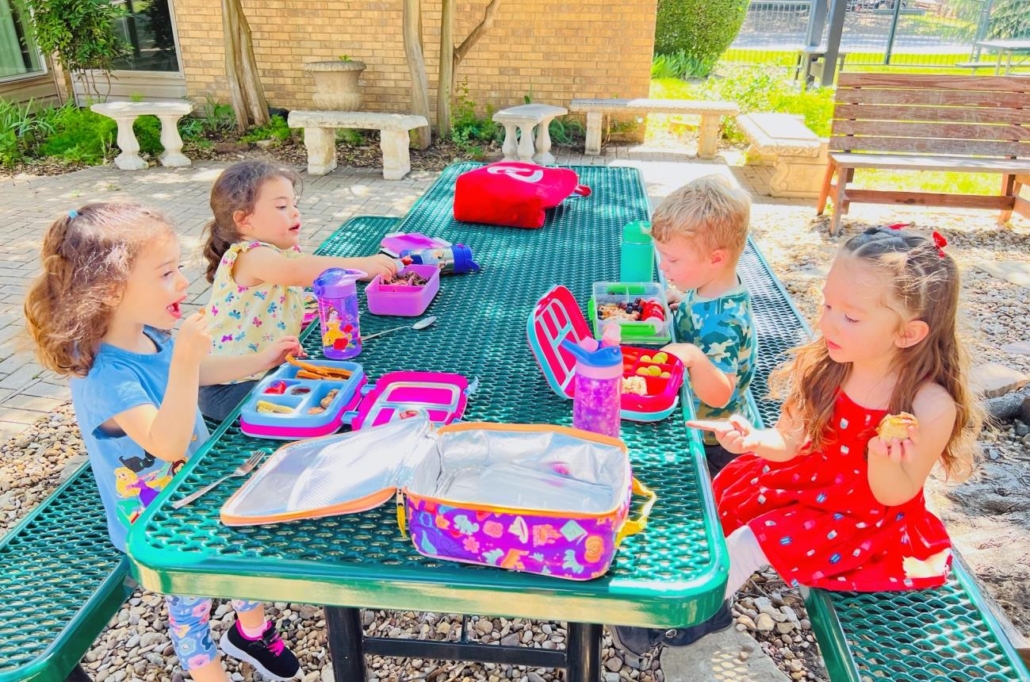
Review of Top Montessori Toys for Creativity and Practical Life Skills
Some of the best Montessori toys that encourage creativity and practical life skills include:
- Dressing Frames: These frames help children learn basic dressing skills like buttoning, zipping, and tying laces.
- Cooking Sets: Small, child-sized cooking tools allow children to help in the kitchen, learning practical life skills while participating in everyday activities.
- Art Supplies: Non-toxic, safe art materials like crayons, clay, and paper encourage free expression and creativity.
- Cleaning Sets: Mini brooms, mops, and dustpans teach children cleanliness and responsibility, mirroring everyday tasks they see adults doing.
How to Integrate Montessori Toys into Everyday Play
Integrating Montessori toys into daily play is about creating an environment that encourages spontaneous learning:
- Accessible Storage: Keep toys on low shelves or in open bins where children can choose what they want to play with independently.
- Regular Rotation: Regularly change the toys available to keep the child’s interest and challenge their different skills.
- Integration with Daily Routines: Incorporate toys like cooking sets or cleaning sets into daily routines to make learning practical and relevant.
- Parental Involvement: While Montessori encourages independent play, parental involvement is vital in guiding the child and enriching the play experience with discussions and demonstrations.
By following these guidelines, parents and educators can create a nurturing environment that maximizes the educational benefits of Montessori toys, fostering a love for learning and creativity in children from a young age.
Ultimate Montessori Toy List by Age
Selecting the right Montessori toys for each stage of a child’s development is crucial for enhancing their learning and growth. This guide breaks down the Montessori toy list by age, from infancy through preschool, each tailored to meet the developmental milestones typical of that stage. Here’s how you can equip your child with tools that foster sensory exploration, independence, problem-solving skills, and school readiness.
Montessori Toys for Infants (0-12 months): Enhancing Sensory Exploration
For infants, sensory exploration is critical to cognitive development. Montessori toys for this age group focus on stimulating the senses:
- Mobiles: Visual mobiles with high-contrast patterns and colors captivate infants’ attention and promote visual tracking.
- Teething Rings: Made from natural materials, these provide relief and give infants something safe to explore with their mouths.
- Soft Books: Featuring varied textures and simple images, these books are perfect for tactile exploration.
- Rattles: Easy to grasp rattles help improve audio perception and fine motor skills.
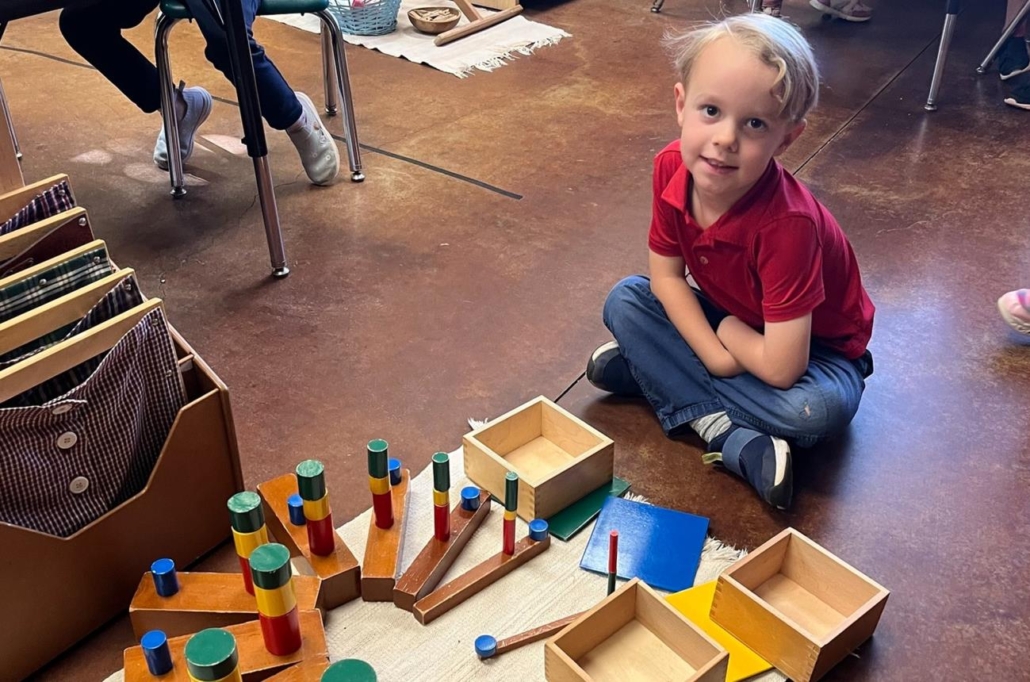
Montessori Toys for Toddlers (1-3 years): Fostering Independence and Problem Solving
As toddlers grow, they need toys that support their burgeoning independence and problem-solving skills:
- Shape Sorters: These toys challenge toddlers to match shapes, which enhances their problem-solving abilities and hand-eye coordination.
- Large Puzzles: With just a few pieces, these puzzles are designed for little hands and help toddlers develop spatial awareness.
- Push and Pull Toys: These encourage toddlers to move around, promoting physical development and coordination.
- Practical Life Tools: Simple household items, like small brooms or watering cans, allow toddlers to mimic adult activities, fostering independence and responsibility.
Montessori Toys for Preschoolers (3-6 years): Preparing for School and Beyond
For preschoolers, Montessori toys shift towards preparing them for a more structured learning environment and advanced skills:
- Bead Sequencing Sets: These sets help children practice patterns, sequencing, counting, and foundational math skills.
- Maps and Globes: Early geography tools introduce basic concepts of the world and spatial relationships.
- Writing Materials: Chalkboards, tracing letters, and pencils support fine motor development and early writing skills.
- Nature Kits: Tools like magnifying glasses and simple microscopes encourage natural world exploration, promoting scientific thinking and curiosity.
Through these toys, Montessori principles help children from infancy through preschool age develop critical physical, cognitive, and social skills, each adapted to their developmental stage, preparing them for lifelong learning.
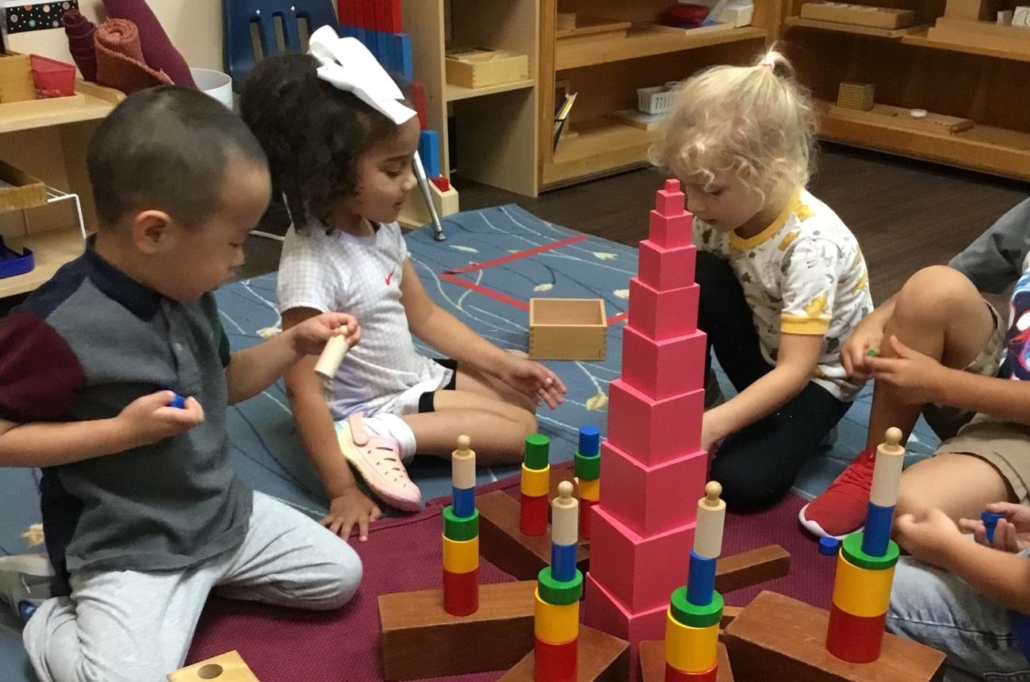
Incorporating Montessori Toys at Home
Creating a home environment that fosters learning through Montessori principles can significantly enhance a child’s development. Here’s how to effectively incorporate Montessori toys into your home setting.
Setting Up a Montessori-Friendly Play Area
A Montessori-friendly play area is simple, tidy, and accessible to your child. Here are steps to set one up:
- Low Shelves: Use low shelves for toy storage, allowing children easy access and the ability to choose what they want to play with.
- Minimalism: Avoid clutter by having a limited selection of toys out at any given time. This encourages deeper engagement with each toy.
- Natural Light: Ensure the play area is well-lit with natural light, developing a warm and inviting space.
- Defined Spaces: Use rugs or mats to define specific areas for activities, helping children understand where each activity belongs.
Tips for Engaging Children with Montessori Toys
Engaging children with Montessori toys can maximize their learning potential:
- Rotate Toys: Regularly rotate the available toys to keep the environment fresh and exciting for the child.
- Follow the Child’s Lead: Observe which toys the child gravitates towards and encourage them to explore these further.
- Interactive Play: Join in on the play occasionally, guiding them through complex tasks or new concepts.
- Encourage Clean-up: Teach children to put toys back in their designated places after playing, fostering a sense of responsibility.
The Role of Parents and Caregivers in Montessori Play
Parents and caregivers are crucial in facilitating Montessori play:
- Be a Guide: Rather than directing play, be a guide. Offer help when needed but encourage independence.
- Provide Encouragement: Celebrate efforts rather than just achievements, reinforcing the value of trying and learning.
- Create a Learning Atmosphere: Beyond toys, embed Montessori principles in daily routines, making learning a consistent part of life.
- Be Patient: Allow children the time to solve problems on their own, resisting the urge to intervene too quickly.
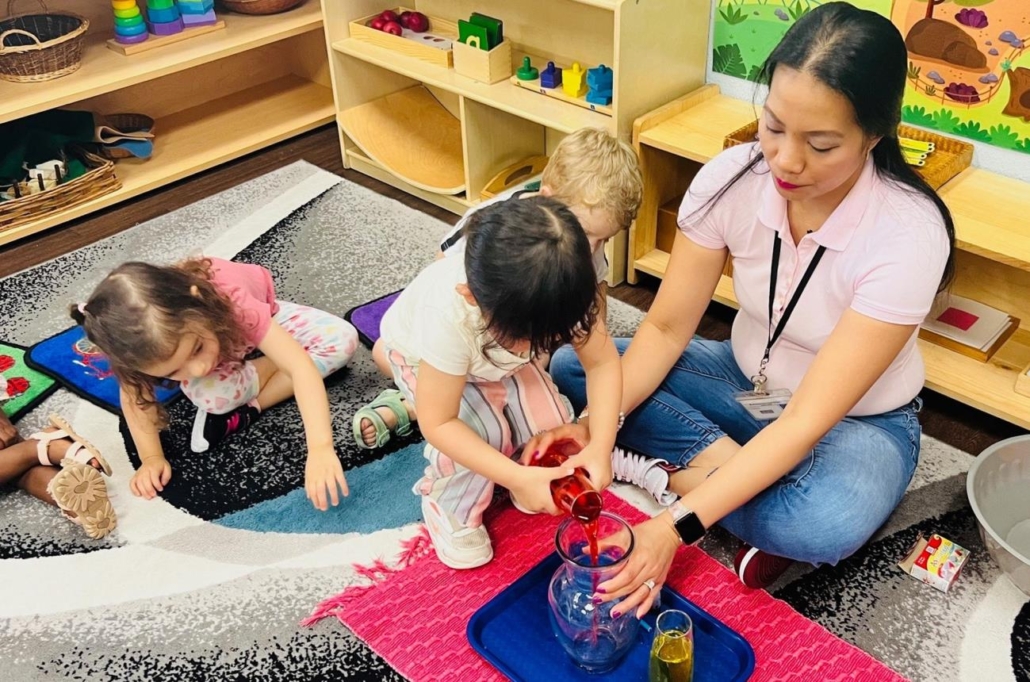
By integrating Montessori toys and principles into home play settings, parents and caregivers can create a supportive environment that promotes not only cognitive development but also independence, creativity, and confidence in children.
Choosing the Right Montessori Toys: A Buyer’s Guide
Selecting suitable Montessori toys can significantly influence your child’s developmental experience. Here’s a comprehensive guide to help you make informed decisions.
Factors to Consider When Buying Montessori Toys
When purchasing Montessori toys, consider the following factors to ensure they are effective and appropriate:
- Educational Value: Choose toys that stimulate learning and development, such as problem-solving or sensory skills.
- Age Appropriateness: Select toys that match your child’s developmental stage to provide the right level of challenge and engagement.
- Material Quality: Opt for toys made from natural, durable materials like wood, which are safer for children and better for the environment.
Recommendations for Durable and Safe Montessori Toys
Investing in high-quality Montessori toys ensures safety and longevity. Here are some recommendations:
- Wooden Blocks: An essential in any Montessori toolkit, they are perfect for building and creative play.
- Sensorial Materials: Items like sound boxes, rough and smooth boards, and scent bottles help refine the senses and are built to last.
- Practical Life Tools: Miniature versions of real-life tools, like brooms, dustpans, and cooking utensils, made from sturdy materials are great for skill development.
- Puzzles: Wooden puzzles with large pieces withstand rough handling and help in cognitive development.
Where to Buy Authentic Montessori Toys
Finding authentic Montessori toys can be challenging, but here are a few trusted sources:
- Specialized Montessori Stores: These stores offer a range of products specifically designed for Montessori education.
- Online Educational Retailers: Websites specializing in educational materials often have sections dedicated to Montessori toys.
- Local Toy Shops: Some local stores carry a selection of Montessori-approved toys; it’s worth checking out what’s available in your area.
- Craft Fairs and Local Artisans: These can be excellent sources for unique, handcrafted Montessori toys.
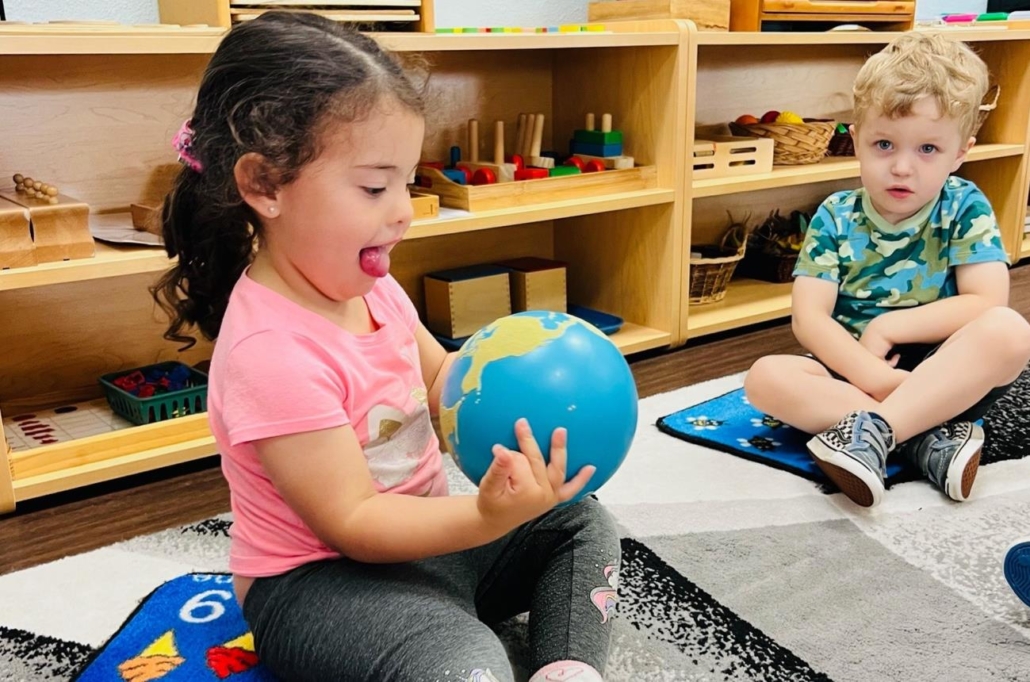
By carefully selecting Montessori toys that are age-appropriate, educational, and made of high-quality materials, you can create an enriching setting supporting your child’s growth and development.
Conclusion
As we’ve explored, Montessori toys are more than just playthings; they are critical tools that encourage learning, creativity, and independence in children from infancy through preschool. By selecting suitable toys, setting up an engaging play space, and integrating these educational tools into daily life, you can provide your child with a rich developmental experience that fosters a lifelong love of learning.
Discover the perfect toys to nurture your child’s growth and explore more about our unique educational approach. Visit us at Montessori Episcopal School or call us at (972) 895-9050 to learn more. Let’s help your child thrive with the best that Montessori has to offer!

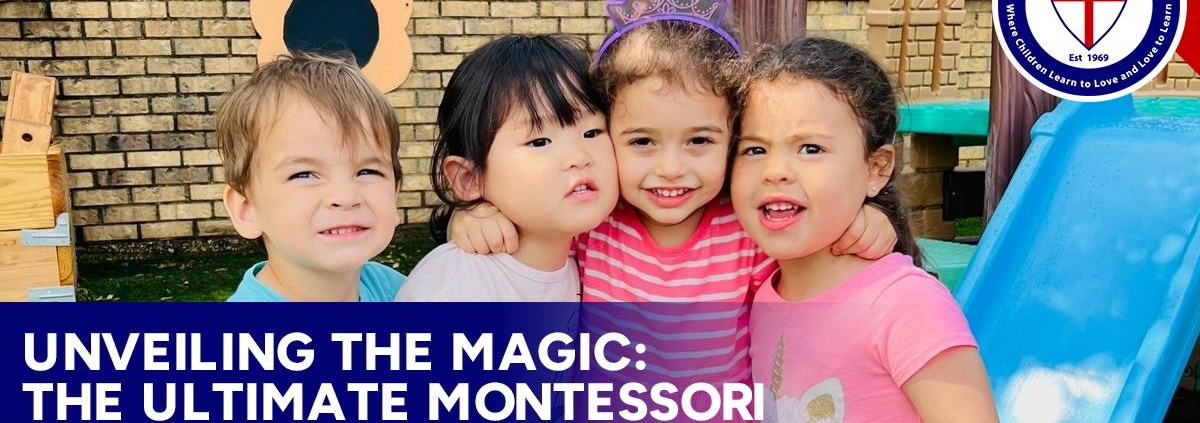


Leave a Reply
Want to join the discussion?Feel free to contribute!